Understanding Mental Health Services
Accessibility to mental health services is crucial for overall well-being. Let’s explore the importance of accessible services and different types of mental health care available.
Importance of Accessible Services
Accessible mental health services are essential for supporting individuals in need. Over three-quarters of Community Health Centers (CHCs) provide mental health services, which significantly increases access to primary mental health care in underserved communities (PMC). Additionally, counties with fewer physicians, a greater percentage of insured individuals, and a higher percentage of the white population exhibited faster growth in mental health services at CHCs from 2006 to 2011 (PMC). Access to mental health care ensures early intervention and treatment, which can prevent minor issues from becoming severe.
Ensuring access to mental health services also plays a pivotal role in preventive health screenings and addressing significant challenges such as the opioid crisis. Health centers are at the forefront of providing preventive care to maintain overall health and well-being within communities.
Types of Mental Health Care
1. Adult Psychiatric Services
Adult psychiatric services include comprehensive evaluations, diagnosis, and treatment of mental health conditions such as depression, anxiety disorders, and bipolar disorder. These services often involve medication management and therapy to help individuals manage their symptoms effectively.
2. Child & Adolescent Psychiatric Treatment
Mental health services for children and adolescents focus on the unique needs of younger populations. These services aim to address issues such as behavioral problems, anxiety, depression, and developmental disorders.
3. Mental Health Therapy
Therapy involves various approaches to help individuals cope with mental health challenges. Common types of therapy include Cognitive Behavioral Therapy (CBT), Dialectical Behavior Therapy (DBT), and family therapy. For more information, you can explore understanding cognitive behavioral therapy (cbt): is it right for you?, an overview of dialectical behavior therapy (dbt) techniques, and the role of family therapy in healing relationships.
4. Substance Use Treatment
Substance use treatment programs specifically target issues related to addiction. These programs often include detoxification, counseling, and long-term rehabilitation to support individuals in achieving and maintaining sobriety.
5. Holistic Services
Holistic mental health services address the mind, body, and spirit. This approach may include mindfulness, meditation, yoga, and other alternative therapies. Integrating mindfulness into therapy can significantly enhance treatment outcomes (the benefits of integrating mindfulness into therapy).
Here’s a table that summarizes different types of mental health care services:
| Service Type | Description |
|---|---|
| Adult Psychiatric Services | Evaluation, diagnosis, treatment of mental health conditions for adults |
| Child & Adolescent Treatment | Mental health services tailored for children and adolescents |
| Mental Health Therapy | Includes CBT, DBT, family therapy, and other therapeutic approaches |
| Substance Use Treatment | Programs focused on addiction detoxification, counseling, and rehabilitation |
| Holistic Services | Mindfulness, meditation, yoga, and alternative therapies |
Understanding the importance and various types of mental health services helps individuals make informed decisions regarding their mental well-being. For more detailed guidance on choosing the right mental health therapist, visit how to choose the right mental health therapist.
Affordability of Mental Health Services
At The Hope Wellness Center in Newport, RI, we believe that everyone should have access to affordable mental health services. Understanding how to access affordable mental health services can make a significant difference in getting the necessary care. Below are some options that we offer to help manage the cost of treatment.
Grants and Scholarships
We understand that treatment costs can be a barrier to accessing high-quality mental health care. That’s why The Hope Wellness Center participates in various grant and scholarship programs aimed at subsidizing treatment costs. These funds are often provided by non-profit organizations, government programs, and private donors.
| Scholarship Type | Coverage Duration | Eligibility |
|---|---|---|
| State-funded Grant | 6 months | Low-income households |
| Private Scholarship | One-time payment | Merit-based |
| Non-profit Grant | 12 months | Needs-based |
These financial aids can cover a wide range of services from adult psychiatric services to holistic healing approaches. It’s crucial to ask about these options and understand any criteria or repayment conditions.
Payment Plans for Treatment
For those who cannot afford to pay the full cost of treatment upfront, payment plans are available. These plans allow individuals to spread the cost of care over a longer period, making treatment more manageable financially.
Understanding the terms of these payment plans is essential. Be sure to discuss the repayment schedule and any potential interest rates beforehand. This approach is ideal for ongoing therapies such as medication management and mental health therapy.
By exploring these financial options, you can find a way to make mental health services more affordable and accessible. For more information on our comprehensive services, psychiatric treatments, and detailed payment plans, feel free to contact us directly.
Accessing Free or Low-Cost Services
For those seeking mental health services without breaking the bank, exploring affordable options is a crucial step. There are various avenues to access low-cost services, including community health centers and federally qualified health centers.
Exploring Affordable Options
Individuals without insurance or those facing high costs even with insurance can find free or low-cost mental health services. Some healthcare professionals and programs offer grants, scholarships, or “charity care” programs to help cover the cost of treatment (SAMHSA).
Another budget-friendly option is the sliding-fee scale payment system. This system adjusts the cost of treatment based on your income, making mental health care more accessible regardless of financial constraints (SAMHSA).
Community Health Centers
Community health centers play a significant role in providing accessible mental health services. These centers are typically non-profit organizations that offer a range of health services, including mental health care, at reduced costs based on your ability to pay. The services often include counseling, therapy, and medication management, tailored to meet the needs of the community.
Community health centers often emphasize preventive care to promote overall health and well-being, conducting health screenings and offering various support programs (HRSA). To find a community health center near you, you can use the health center locator tool provided by the HRSA.
Federally Qualified Health Centers
Federally qualified health centers (FQHCs) are another excellent resource for affordable mental health services. These centers are funded by the federal government and are required to provide care to individuals regardless of their ability to pay. Many FQHCs offer tele-counseling services, making mental health care more accessible.
| Service | Description | Payment |
|---|---|---|
| Counseling | One-on-one or group sessions | Sliding-fee scale |
| Therapy | Various therapeutic approaches (e.g., CBT, DBT) | Based on income |
| Medication Management | Regular check-ins and medication adjustments | Affordable rates |
FQHCs are a vital resource for those without insurance or with limited financial means. They ensure access to mental health care and other essential services, including preventive health screenings (The Jed Foundation).
To locate an FQHC, you can use their online health center locator tool, which allows searching by address, state, or county.
For additional information on how to access affordable mental health services, explore our articles on how to find the best therapist near you and understanding the different types of counseling services.
Specialized Mental Health Programs
Meeting the diverse needs of individuals requires specialized mental health programs. These services are tailored to address specific population needs and unique behavioral health challenges. Here we explore child & adolescent treatment, substance use services, and holistic healing approaches.
Child & Adolescent Treatment
Children and adolescents require specialized care designed to address developmental stages and unique pressures. At programs like those offered by The Hope Wellness Center, tailored therapies help young individuals manage issues such as depression, anxiety, and behavioral problems. Our services are crafted to foster resilience and mental well-being.
Our child and adolescent treatment programs incorporate various therapeutic techniques, including:
- Cognitive Behavioral Therapy (CBT): An approach that helps individuals recognize and change negative thought patterns (Understanding Cognitive Behavioral Therapy).
- Family Therapy: Enhances communication and resolves conflicts within family units (The Role of Family Therapy in Healing Relationships).
- Group Therapy: Provides a supportive environment where individuals can share experiences and coping strategies (The Impact of Group Therapy on Personal Growth).
For more on the benefits of child and adolescent therapy, refer to our in-depth article on the benefits of child and adolescent therapy.
Substance Use Services
Substance use disorders require a comprehensive and specialized approach to treatment. The Hope Wellness Center offers a variety of evidence-based interventions aimed at helping individuals overcome substance dependency.
Our substance use services include:
- Detoxification Programs: Safely managing the withdrawal process.
- Inpatient and Outpatient Rehabilitation: Structured programs that provide therapy and support.
- Medication-Assisted Treatment (MAT): Combines medication with counseling and behavioral therapies.
For individuals seeking to understand the process and benefits of these services, exploring our understanding the different types of counseling services can provide useful insights.
Holistic Healing Approaches
Holistic healing approaches consider the individual’s physical, emotional, and spiritual well-being. The Hope Wellness Center incorporates various holistic techniques into mental health care, including:
- Mindfulness and Meditation: Practices that enhance mental clarity and reduce stress.
- Nutritional Counseling: Focuses on the connection between diet and mental health (The Connection Between Physical and Mental Health).
- Yoga and Physical Exercise: Activities that promote overall wellness and help manage symptoms of anxiety and depression.
By combining traditional therapy with these holistic approaches, we aim to provide a well-rounded treatment plan that supports long-term mental health.
Supplementary Tools and Programs
For those seeking additional resources and understanding, we recommend:
- How to Choose the Right Mental Health Therapist
- Exploring Different Types of Psychotherapy
- The Advantages of Telehealth Therapy Services
- How to Support a Loved One in Therapy
Understanding and accessing specialized mental health programs can significantly enhance one’s pathway to healing. For expertise in how to access affordable mental health services, consult resources like community health centers or the Open Path Collective. Always inquire about payment plans, grants, and sliding-fee scales to make treatment more affordable.
Online Mental Health Resources
Mental Health Apps
Mental health apps offer an accessible and affordable way for individuals to manage their mental well-being. These apps are designed to provide user-friendly interfaces and a range of features, such as mindfulness practices, stress-coping mechanisms, and strategies to improve sleep quality (Verywell Mind). Here are some popular mental health apps:
These apps provide tools and resources to support mental health in various ways. If you want to delve deeper into the benefits of online counseling services, check out our article on the benefits of online counseling services for mental health.
Affordable Therapy Options
For those seeking more direct therapy options, platforms like BetterHelp and Talkspace offer affordable therapy sessions via online mediums such as live video, audio, or chat. BetterHelp, established in 2013, provides therapy sessions with licensed therapists and includes 24/7 unlimited messaging (Verywell Mind).
These platforms provide flexible and comprehensive mental health care solutions and can cater to various mental health concerns. For more information on finding the right therapist, visit our guide on how to find the best therapist near you.
Popular Therapy Platforms
Popular platforms such as BetterHelp and Talkspace have set standards in online therapy by offering accessible and versatile therapy options. Talkspace offers specialized therapy programs for issues like depression and couples therapy.
Here is a comparison of popular therapy platforms:
| Platform | Specializations | Coverage |
|---|---|---|
| BetterHelp | Individual therapy, anxiety, depression | No insurance |
| Talkspace | Individual, teen, couples therapy, sleep therapy, depression | Some insurance plans accepted |
| Regain | Couples counseling | No insurance |
These therapy platforms provide various options tailored to different needs, making them a valuable resource for anyone seeking online mental health support. For an overview of different types of counseling services, explore our article on understanding the different types of counseling services.
By leveraging these online mental health resources, we can take proactive steps toward better mental health and well-being while keeping affordability and accessibility in mind. For further reading, consider our articles on how to access affordable mental health services and the advantages of telehealth therapy services.
Finding Support in Educational Settings
Educational institutions are vital in providing mental health support to students. Whether in high school or college, many facilities offer various services to ensure students have access to the care they need.
High School Counseling Services
High schools frequently offer on-site counseling services. These counselors are trained to help students address mental health concerns, academic pressures, and personal issues. They also play a pivotal role in early identification and intervention for mental health problems.
Among the benefits of high school counseling services:
- Accessibility: Students can access services during school hours.
- Referrals: Counselors often have relationships with community-based organizations providing free or low-cost mental health care.
- Support: Counseling services offer both individual and group sessions, accommodating diverse needs.
For understanding more about different counseling techniques, you may want to read about cognitive behavioral therapy (cbt) and its applications.
College Mental Health Resources
Colleges and universities provide a range of mental health resources to their students. These services are typically extensive and tailored to cater to the diverse needs of the student population.
Some common services include:
- On-Site Counseling Centers: Offering therapy sessions, workshops, and mental health crisis interventions.
- 24/7 Hotlines: Emergency mental health support.
- Student Health Services: Facilities often include mental health professionals who provide consultations and treatment.
Increasingly, colleges are also integrating online counseling services, allowing more flexible access to mental health care.
Community-Based Support Programs
Both high schools and colleges often extend their support network by collaborating with community-based programs. These programs are crucial for offering additional resources and focused treatments. According to HRSA data, and JED Foundation, such collaborations foster comprehensive care through:
- Community Health Centers: Providing affordable outpatient services.
- Federally Qualified Health Centers: Offering primary care services inclusive of mental health care.
- Non-Profit Organizations: Many organizations offer specialized programs at low or no cost.
For more insights into maintaining well-being, exploring the importance of mental health counseling can be quite informative.
Summary Table
| Support Type | Accessibility | Cost | Benefits |
|---|---|---|---|
| High School Counseling | During school hours | Low or No Cost | Early identification, referrals, support |
| College Mental Health Resources | On-site and online | Low or No Cost | Comprehensive care, workshops, 24/7 hotlines |
| Community-Based Programs | Various locations/times | Affordable/Slidng Fee | Broader resource network, specialized care |
Understanding how to access affordable mental health services can significantly benefit students facing various challenges. These educational settings not only make mental health services more accessible but also create a supportive environment for overall well-being. For further reading, consider exploring how to find the best therapist near you or the benefits of child and adolescent therapy.










